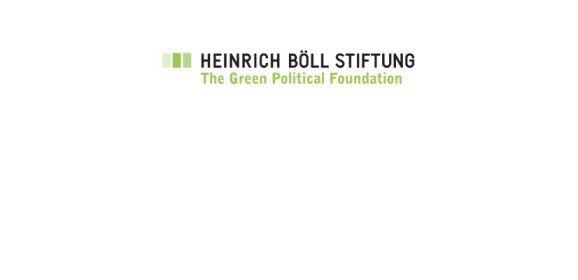Section: Heinrich Boell Foundation (Germany)
History: From coal to climate
Energy has played a major role in the history of the European Union. Coal was the first fuel to be exploited; signed in 1951, the Treaty of Paris established the European Coal and Steel Community. With the signing of the Euratom treaty in 1957 to promote nuclear power, energy was once again the backbone of European integration. The economic base...
A Classic Dilemma: Russia’s Threat to Withdraw from the Council of Europe
When Russia joined the Council of Europe in 1996, this was a major step and a sign of a fundamentally new time. The successor state to the Soviet Union joined a pan-European human rights regime that provided the citizens of its member states with effective judicial tools to defend their rights. Today, a good two decades later, Russia’s...
The Heinrich Böll Foundation mourns the death of Memorial co-founder Arseny Roginsky
Arseny Roginsky, born in 1946, was “a child of the GULAG”, as his father, an engineer from Leningrad, had been sentenced to imprisonment in the camps in 1938 – and again in 1951. His parents met during their exile in the North. In 1956, after his father’s death in detention, he and his mother moved back to Leningrad. In the 1960s, Arseny...
Hungary: a state captured by Russia
Mihály Vajda, a renowned Hungarian philosopher[1] recently resigned from his post as Professor Emeritus after the University of Debrecen awarded Vladimir Putin an honorary degree. This event took place during the Russian president’s most recent visit to Budapest and remarkably encapsulates how Hungary’s political right has come full...
“Proof that history can be changed”
Irina Scherbakova was born in 1949. She is a civil rights activist, historian, and German scholar. In 1988, she was one of the founding members of Memorial – the first Soviet human rights organization. Simone Brunner spoke with her: Ms. Scherbakova, two years ago a book consisting of a dialogue between you and the German historian Karl Schlögel...
Ralf Fücks: “For me, the Foundation opened a window upon the world”
Sergey Lagodinsky: In 1996 you became president of the Foundation, following, as we just discovered, a very active and eventful political career.Did it take you long to decide? And why did you decide to work for the Foundation? If my memory serves me right, it was Lukas Beckmann who called me and asked whether I’d like to have the job. This...
A Farewell to Ralf Fücks, President of the Heinrich Böll Foundation by Cem Özdemir
Ladies and gentlemen!Dear Ralf! According to the dictionary, a thought leader is “a forward-looking person, able to identify certain trends and developments and to influence or promote them by virtue of his or her own ideas.” According to this definition, there are probably quite a few people who regard themselves as thought leaders, including...
LGBTI in Russia: history of success, opportunities and challenges
2000s: Development of movement and public support The LGBTI movement in Russia was on the rise in the middle of 2000-s. At that time LGBTI activists founded key organisations and launched several initiatives for defending their rights, awareness-building and researching of public opinion. The first gay pride was organised by a GayRussia...
The Dutch defeat ‘the wrong kind of populism’
Especially three developments appear to have caused Wilders’ “defeat” in the election. Still, the next Dutch government will chose a centre-right course on social-economic, climate and immigration policies. Prime Minister Mark Rutte labeled the Dutch elections of March 15 2017 as the quarterfinal in the battle against the “wrong kind of...
Radicalisation in Isolation: The Success of the Dutch Freedom Party
The radical right-wing populist Freedom Party (PVV) is currently tied for first place in the polls for the upcoming Dutch elections. Is this a clear sign of a radical right-wing populist wave in the Netherlands? What underlies the success of this party? And how can it be compared to other radical right-wing populist parties? Geert Wilders formed...



